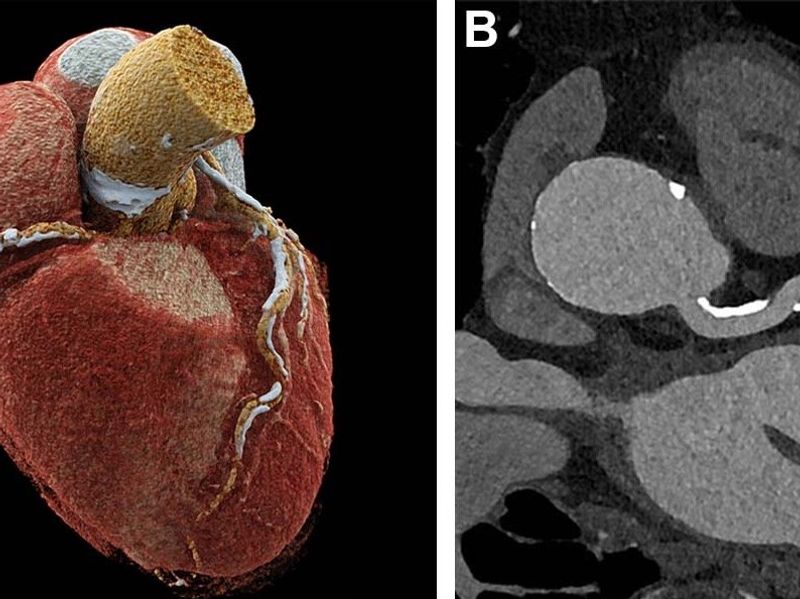In a recent study, AUC of ultrahigh-resolution photon-counting coronary CT angiography was 0.93 per participant for detection of coronary artery disease
By Elana Gotkine HealthDay Reporter
WEDNESDAY, June 21, 2023 (HealthDay News) — For patients at high risk for coronary artery disease (CAD), ultrahigh-resolution (UHR) photon-counting coronary computed tomography angiography (CCTA) has high diagnostic accuracy, according to a study published online June 20 in Radiology.
Muhammad Taha Hagar, M.D., from the Medical Center-University of Freiburg in Germany, and colleagues enrolled patients with severe aortic valve stenosis and clinically indicated CT for transcatheter aortic valve replacement planning in a prospective study. A dual-source photon-counting CT scanner was used to examine all participants using a retrospective electrocardiography-gated contrast-enhanced UHR scanning protocol. As part of their clinical routine, patients also underwent invasive coronary angiography (ICA). Area under the receiver operating characteristic curve (AUC) was used to compare UHR CCTA to ICA.
The researchers found that the prevalence of CAD and prior stent placement was 35 and 22 percent, respectively, among 68 participants. Image quality was excellent overall (median score, 1.5). For detection of CAD, the AUC of UHR CCTA was 0.93 per participant, 0.94 per vessel, and 0.92 per segment. The sensitivity, specificity, and accuracy, respectively, were 96, 84, and 88 percent per participant; 89, 91, and 91 percent per vessel; and 77, 95, and 95 percent per segment.
“It appears that the spectrum of patients benefiting from undergoing noninvasive CCTA has been significantly broadened by photon-counting detector technology,” Hagar said in a statement. “This is excellent news for these patients and the imaging community.”
Several authors disclosed ties to pharmaceutical and medical device companies, including Bayer Healthcare, which funded the study.
Editorial (subscription or payment may be required)
Copyright © 2023 HealthDay. All rights reserved.








